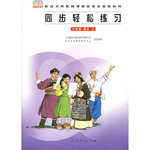题目内容
A traveller was staying in an Egyptian village. One day, she held up her camera to take pictures of the children. Suddenly the young ones began to shout at her. The traveller's face turned red and she apologized to the head for what she was doing, and told him she had forgotten that people in some places believed a person would lose his soul if his picture was taken. She explained to him the operation of a camera for a long time. Several times the head tried to say something, but he couldn't. When she believed that the head didn't fear any longer, the traveller then let him speak. With a smile, he said, "The children were trying to tell you that you forgot to take off the lens(镜头) cap!"
1.The children shouted when the traveller was taking pictures of them because ___?
A. they didn't want to stop playing
B. the traveller forgot to take off the cap on her head
C. they didn't want to have their pictures taken
D. the traveller was not doing well with her camera
2.The traveller made an apology to the head because _____.
A. she thought it was not right to take people's pictures without telling them beforehand(事先)
B. the children would lose their souls
C. she had stayed in the village too long
D. she didn't take a picture of the head first
3.The traveller explained how to use a camera to the head because _____.
A. the head was very interested in her camera
B. the head wanted to learn to take pictures
C. she was afraid of the head
D. she wanted the head not to worry about what she was doing
4.When the head smiled, it's clear that _____.
A. the children wanted to play with her
B. the traveller didn't know what the children meant
C. he wanted the traveller to tell him something else
D. the traveller didn't let him speak
5.Which of the following is NOT right?
A. The traveller knew something about people in some countries.
B. The children wouldn't mind if the traveller took pictures of them.
C. The head was afraid that the traveller's camera would hurt the children.
D. The traveller didn't understand why the children shouted.
1.D
2.A
3.D
4.B
5.C
【解析】
试题分析:本文是一则幽默故事。一位游客去埃及旅游,她举起相机要拍照,突然年轻人冲她大喊,这个游客以为自己冒犯了当地人的习惯而开始道歉,最终,那个人告诉她照相机的镜头没有打开。
1.细节理解题。根据文章的最后一句With a smile, he said, "The children were trying to tell you that you forgot to take off the lens(镜头) cap!"可知她没有打开镜头。A、B、C三项均与文意不符,故选 D。
2. 推理判断题。根据第四句“The traveller's face turned red and she apologized to the head for what she was doing, and told him she had forgotten that people in some places believed a person would lose his soul if his picture was taken”可知她认为没有事先告诉别人就给他们拍照是不合适的,所以她表示歉意。B、C、D均与文意不符,故选 A。
3. 细节理解题。根据倒数第二句When she believed that the head didn't fear any longer, the traveller then let him speak可知这位游客是想让人家不必担心她的所作所为。A、B、C三项均不符合文意,故选 D。
4. 推理判断题。通读全文可知,the head 几次想打断她说点什么却没能够,再结合他说的话,推断出这位游客不知道孩子们朝她大喊是什么意思。A、C、D三项均与文意不符,故选B。
5.细节理解题。根据第四句“and told him she had forgotten that people in some places believed a person would lose his soul if his picture was taken”得知A项正确;事实证明当地人不介意照相,B 项正确;直到最后这位游客才明白孩子的意图,D项表述符合文意;The head 并不是害怕游客的照相机会伤害孩子,C 项错误,故选C。
考点:考查日常生活类短文阅读

 同步轻松练习系列答案
同步轻松练习系列答案 课课通课程标准思维方法与能力训练系列答案
课课通课程标准思维方法与能力训练系列答案